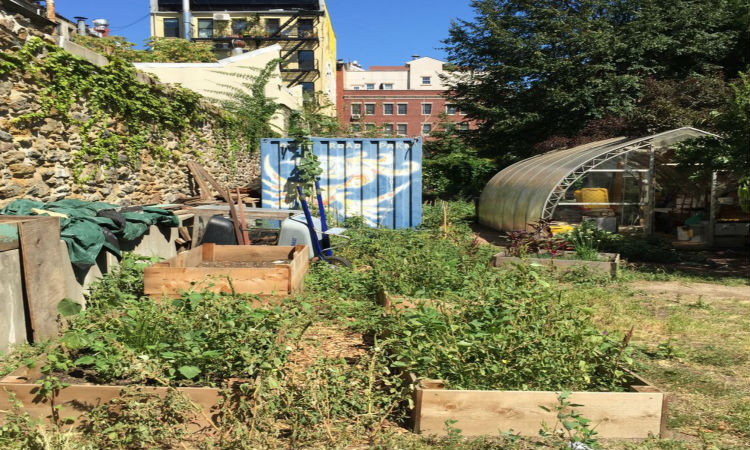 Reclaimed Organics is taking leftover meals and throwing them onto bike wheels, reducing both automobile transportation and food waste through a simple, low-input service. A couple of days a week, employees travel New York City via bicycle, collecting leftover ‘organics’ (compostable food scraps) and transporting them to a managed garden called East Side Outside Community Garden.
Reclaimed Organics is taking leftover meals and throwing them onto bike wheels, reducing both automobile transportation and food waste through a simple, low-input service. A couple of days a week, employees travel New York City via bicycle, collecting leftover ‘organics’ (compostable food scraps) and transporting them to a managed garden called East Side Outside Community Garden.
Founder Laura Rosenshine calls Reclaimed Organics, “… a kind of reverse delivery food service. We order pizza,” she says, “why can’t we call for someone to come and pick up our compost?”
 Reclaimed Organics is taking leftover meals and throwing them onto bike wheels, reducing both automobile transportation and food waste through a simple, low-input service. A couple of days a week, employees travel New York City via bicycle, collecting leftover ‘organics’ (compostable food scraps) and transporting them to a managed garden called East Side Outside Community Garden.
Reclaimed Organics is taking leftover meals and throwing them onto bike wheels, reducing both automobile transportation and food waste through a simple, low-input service. A couple of days a week, employees travel New York City via bicycle, collecting leftover ‘organics’ (compostable food scraps) and transporting them to a managed garden called East Side Outside Community Garden.
Founder Laura Rosenshine calls Reclaimed Organics, “… a kind of reverse delivery food service. We order pizza,” she says, “why can’t we call for someone to come and pick up our compost?”
Though still in its pilot phase, Reclaimed Organics is capitalizing on a solution to a growing problem: food waste. The U.N Food and Agriculture Organization (FAO), in its Sustainable Development Goals (SDG’s), outlined its vision of cutting global per-capita food waste in half by 2030. This is especially significant in the U.S, where it’s estimated that 30-40 percent of our food supply is wasted.
According to Rosenshine, “ When food waste gets to a landfill, it’s suffocated. When it decomposes, it generates methane gas. That methane gas is a harmful greenhouse gas, more harmful than CO2. I believe there’s a need for local composting models.”
Picture credit: Food Tank

